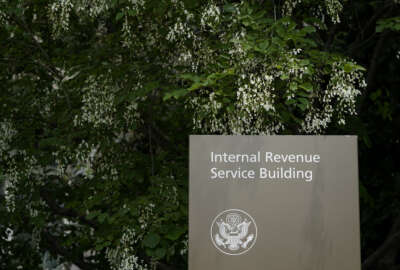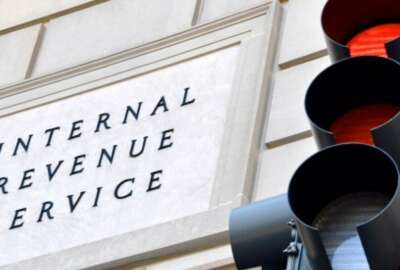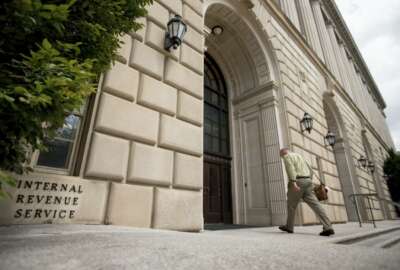
Avoiding the IRS’ you’re-being-audited club!
Few things are more daunting than being audited by the Internal Revenue Service. And they are likely becoming more frequent. But you can take steps to make sure...
When it comes to exclusive clubs, one of the toughest to get into is the elite band who get audited by the Internal Revenue Service. Few people make it in (and for that matter, out), but if you do, hold on to your hat. Also your house, salary, retirement checks and anything else Uncle Sam can sell to pay off your surprise debt. Audits have been down in recent years because Congress and/or the White House have cut the budget and number of IRS employees. All the while adding extra chores for IRS employees And oh yes, there is that lengthy time out for a worldwide pandemic.
But things are about to change. The IRS is likely to get more money and more help. If you like the idea of everybody paying their full share, this is good news. But if you get picked for an audit, fasten your seat belt because it can be a wild, uncomfortable ordeal. Even if you come out with a clean bill of health. If not, consider the cons of an all-expenses but mandatory time out in a federal pen. Best thing to do with an audit is learn how not to make yourself a target. Which is the subject of today’s Your Turn show, with guest Tom O’Rourke. He’s an estate and tax attorney — and was a long-time lawyer with the IRS. Catch the show at 10 a.m. ET streaming here or on the radio at 1500 AM in the D.C. area. The good news, he says, is audits aren’t very common. Your odds of avoiding an audit are good. But for many people, good is not good enough. And there are things you can do, and things you shouldn’t do, to avoid an audit.
Tom has developed a 14-step guide to tax practices which are likely to set you up for an audit. Here’s his guideline:
A primary goal of many taxpayers is to avoid having their federal income tax return audited by the IRS. This has really been quite easy in recent years. For the most recent year which information is available, 2019, only .4% of all returns (40 out of every 100,000 returns filed) have been audited by IRS. The President has proposed increasing IRS enforcement efforts, and the audit rate may increase in the future. Here are some of the factors likely to increase the chances of an audit:
- If your income is more than $200,000 per year, the likelihood of an audit is increased. The audit rate for persons with income of between $200,000 and $1 million is 1%, and for persons with income of more than $ 1 million, it’s 2.4%
- Failing to report all income. Third party payors such as financial institutions, employers, or customers report income paid to the IRS. If a taxpayer fails to report this income on their tax return, they are likely to receive a notice from the IRS.
- Claiming higher than average itemized deductions and, in particular, large charitable contribution deductions. Any noncash deduction of more than $500 requires the filing of Form 8283 and may require an appraisal.
- Operating a business.
- Claiming rental losses. While you can claim losses of up to $25,000, this deduction amount phases out for persons with adjusted gross income (AGI) of more than $100,000 and is completed phased out if AGI is more than $150,000.
- Failing to file a tax return. Because entities that pay you income report this income to the IRS, the IRS is likely to know that you have not filed a return and is more likely to contact you.
- Deducting losses incurred in pursuing what IRS considers a hobby.
- Claiming a home office deduction.
- Taking an early distribution (before age 59½) from a tax deferred retirement plan.
- Incorrectly reporting alimony that is either paid or received.
- Engaging in cash transactions of more than $10,000.
- Claiming a deduction for gambling losses.
- Failing to report a foreign bank account.
- Claiming the foreign earned income exclusion.
Finally, he says “an important factor in dealing with tax issues is to claim what you are entitled to, keep records to prove your activities — and don’t worry about an IRS audit.”
Nearly Useless Factoid
By Alazar Moges
With 879 days during the course of five missions over 17 years, Russian astronaut Gennady Padalka holds the record for the most amount of time spent in space. Fellow Russians Yuri Malenchenko and Sergei Krikalev follow behind him also having spent more than 800 days in space.
Source: National Geographic
Copyright © 2024 Federal News Network. All rights reserved. This website is not intended for users located within the European Economic Area.
Mike Causey is senior correspondent for Federal News Network and writes his daily Federal Report column on federal employees’ pay, benefits and retirement.
Follow @mcauseyWFED
Related Stories

IRS procurement shop develops web app to predict contract spending




